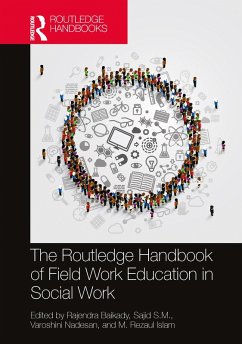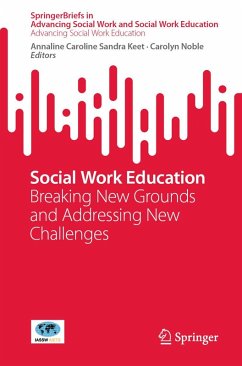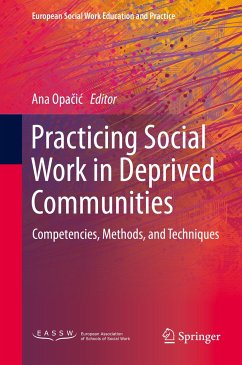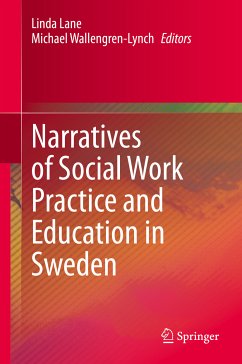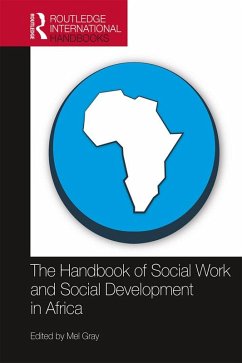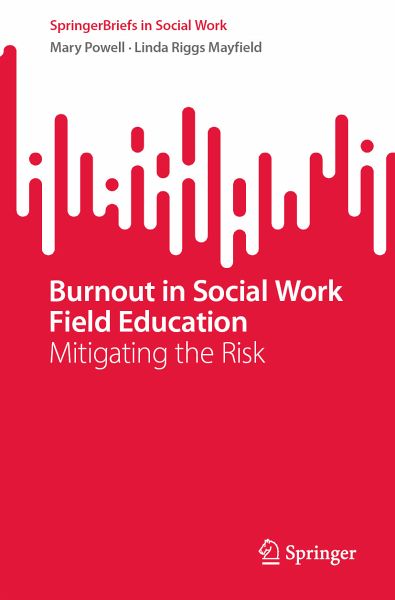
Burnout in Social Work Field Education (eBook, PDF)
Mitigating the Risk
Versandkostenfrei!
Sofort per Download lieferbar
36,95 €
inkl. MwSt.
Weitere Ausgaben:

PAYBACK Punkte
18 °P sammeln!
This book informs social work students about the context and potential for burnout in their field experience, their first work with clients, and equips them to recognize, prevent, and address it. With its emphasis on role ambiguity and self-care based on current research, the volume uniquely fills the gap in available texts and prepares them for successful professional practice with personal mental health. Job burnout and self-care have received attention in research and education in social work and other caring professions, but social work students must successfully complete managed learning ...
This book informs social work students about the context and potential for burnout in their field experience, their first work with clients, and equips them to recognize, prevent, and address it. With its emphasis on role ambiguity and self-care based on current research, the volume uniquely fills the gap in available texts and prepares them for successful professional practice with personal mental health.
Job burnout and self-care have received attention in research and education in social work and other caring professions, but social work students must successfully complete managed learning assignments in the field before they can become social workers, and those experiences can put the student at risk for burnout. Until very recently, however, student burnout has been a 'silent' issue in the profession and the literature.
With this compact book, readers learn the risks of burnout in field assignments for students and new professionals, the organizational andpersonal factors that contribute to it, appropriate self-care strategies to reduce its incidence, and effective coping strategies to limit its effect. Stakeholders gain understanding about burnout incidence, prevention, and self-care that prepares them to take appropriate preventive and prescriptive action.
Burnout in Social Work Field Education: Mitigating the Risk is a timely and essential resource for social work instructors, students, field interns, instructors, and supervisors. It can serve as a supplementary text to aid students in understanding what factors will increase their risk of burnout and help them identify which coping strategies are most likely to be effective, based on research. It is a highly desirable complementary text for adoption in social work courses and in-service education in early social work practice. The book also should interest administrators in social service agencies and presenters of in-service education opportunities for social workers and social work educators.
Job burnout and self-care have received attention in research and education in social work and other caring professions, but social work students must successfully complete managed learning assignments in the field before they can become social workers, and those experiences can put the student at risk for burnout. Until very recently, however, student burnout has been a 'silent' issue in the profession and the literature.
With this compact book, readers learn the risks of burnout in field assignments for students and new professionals, the organizational andpersonal factors that contribute to it, appropriate self-care strategies to reduce its incidence, and effective coping strategies to limit its effect. Stakeholders gain understanding about burnout incidence, prevention, and self-care that prepares them to take appropriate preventive and prescriptive action.
Burnout in Social Work Field Education: Mitigating the Risk is a timely and essential resource for social work instructors, students, field interns, instructors, and supervisors. It can serve as a supplementary text to aid students in understanding what factors will increase their risk of burnout and help them identify which coping strategies are most likely to be effective, based on research. It is a highly desirable complementary text for adoption in social work courses and in-service education in early social work practice. The book also should interest administrators in social service agencies and presenters of in-service education opportunities for social workers and social work educators.
Dieser Download kann aus rechtlichen Gründen nur mit Rechnungsadresse in A, B, BG, CY, CZ, D, DK, EW, E, FIN, F, GR, HR, H, IRL, I, LT, L, LR, M, NL, PL, P, R, S, SLO, SK ausgeliefert werden.



